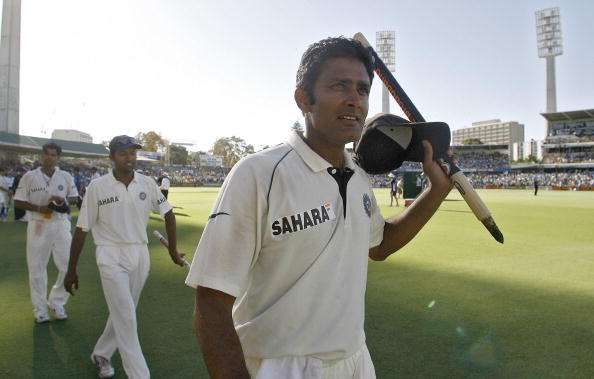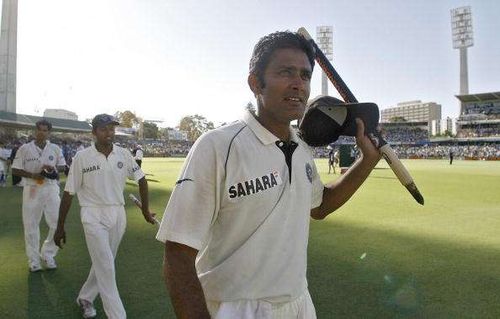
Sunil Gavaskar reveals the Perth Test (2008) to be the match he enjoyed watching the most
Former Indian captain Sunil Gavaskar has revealed that the Test match he enjoyed watching the most after retirement was the Perth Test between India and Australia in 2008.
While speaking to the Hindu in the lead up to India’s 500th Test, the batting legend also spoke about the best Test match he has played in, giving the title to the 1980 Test between India and Pakistan at Chennai.
“The Test match that I enjoyed most after retirement was the Perth Test in 2008. This was the Test after the clash between Andrew Symonds and Harbhajan Singh in Sydney and all the brouhaha that followed.
The clash refers to the Monkeygate incident between Symonds and Harbhajan that shook the cricketing world and strained ties between the two nations.
“The Australian media tried to put the scare in the team by suggesting that Shaun Tait, bowling on the fastest pitch in Australia, would knock the Indians over. Instead Virender Sehwag blasted him and Rahul Dravid showed such a broad bat that Tait decided to retire from Test cricket after that game and focus only on the shorter formats.
Australia took the field in the hope of winning their 17th consecutive Test match, but a rampaging Indian pace attack, led by RP Singh, got the better of the hosts, and India won by 72 runs.
“India’s seam bowlers used the conditions superbly with R.P. Singh bowling some great overs. Anil Kumble’s strong leadership came through as the Indians triumphed on what was seen as Australia’s fortress.’’
The Test win for India was an advertisement for cricket, and helped lift the gloom off the atrocious umpiring and poor gamesmanship on the part of the Australians, compounded with the Harbhajan-Symonds incident.
Sunil Gavaskar was working as a commentator during the Test series, and was heard lambasting the Australians for their dodgy behaviour on the field.
In a 125 Test career, Gavaskar scored 10,122 runs at an average of 51.12. He was the first player to achieve the landmarks of 10,000 Test runs and 30 Test centuries.
